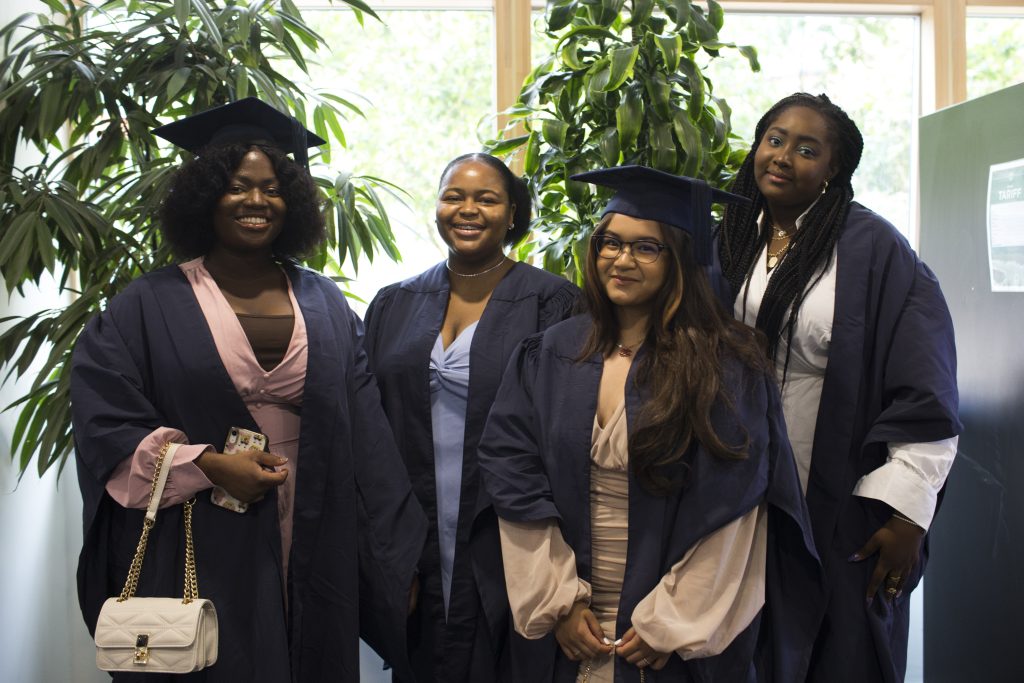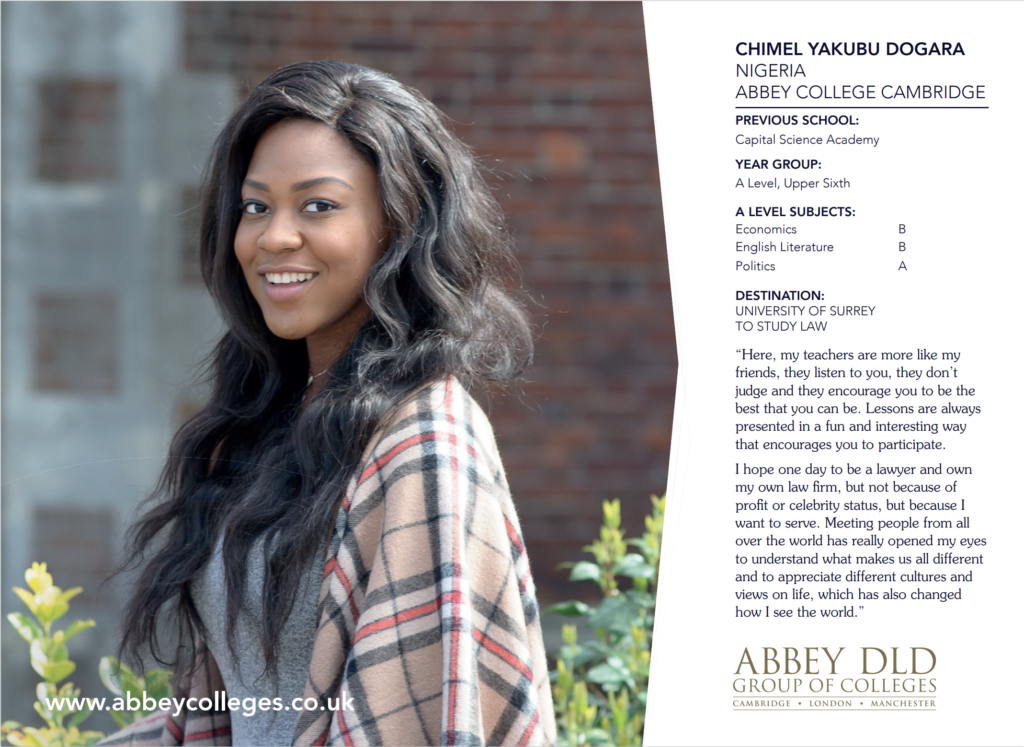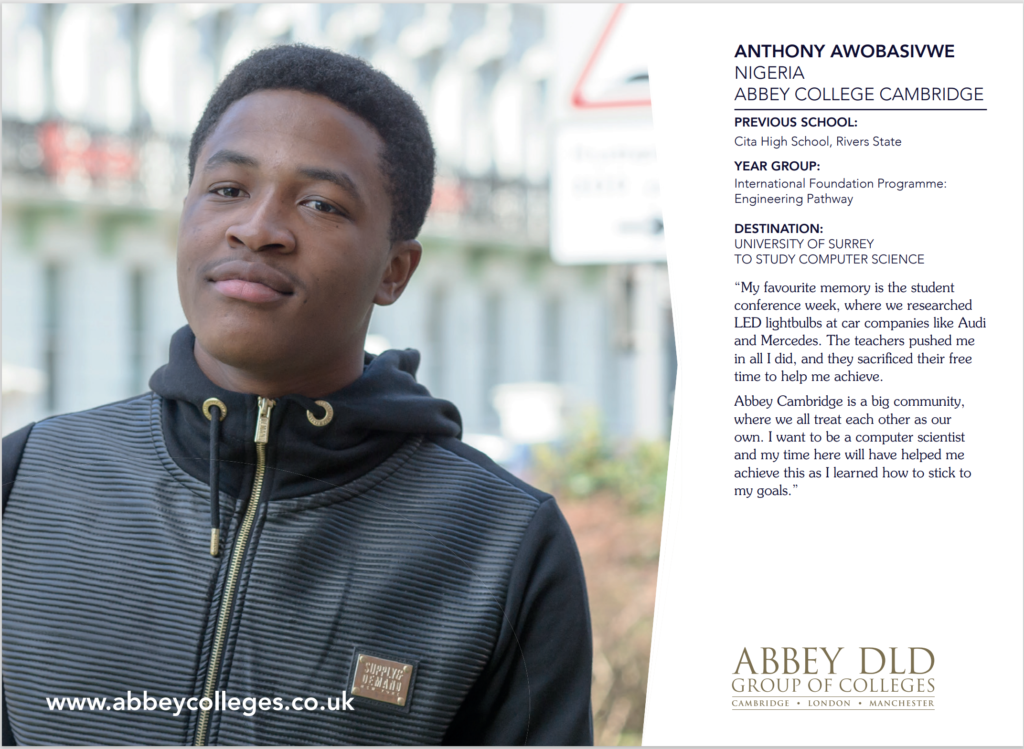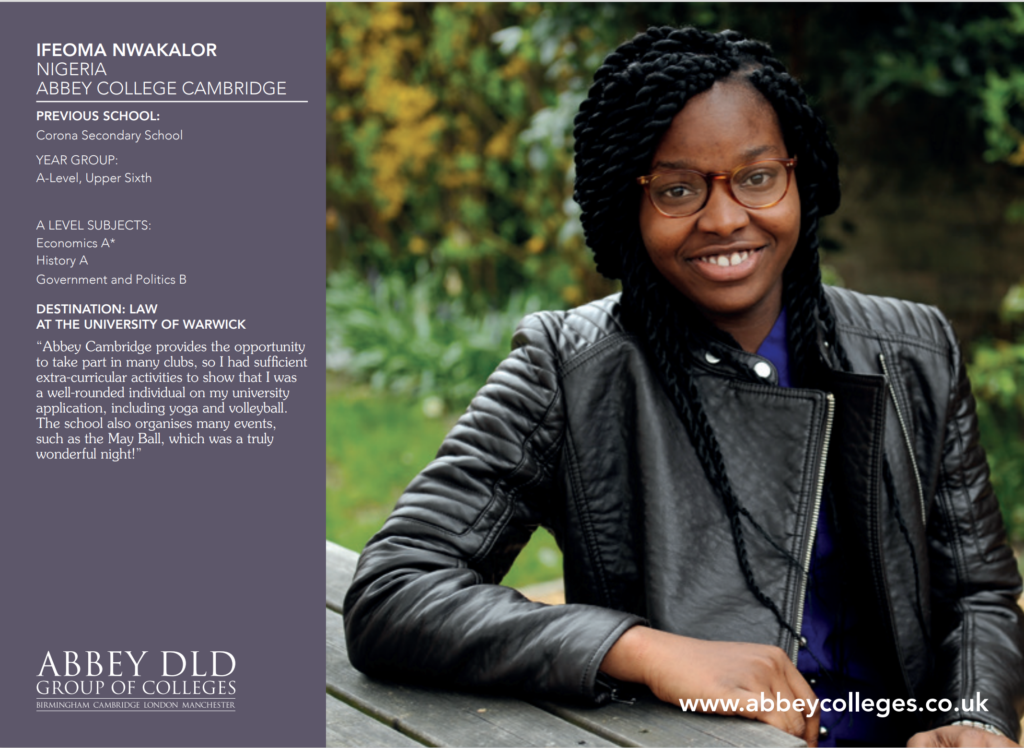Comparing The Differences Between The Nigerian and UK Education System: A Guide for Nigerian Students.
12th March 24

Introduction:
An overseas education is a significant decision. This blog aims to support Nigerian students, who are contemplating coming to study in the United Kingdom, with a detailed comparison between the Nigerian and British education systems thereby enabling them to make an informed decision.
Nigerian Education System
In Nigeria, the educational framework consists of a 1+6+3+3 system, encompassing stages such as kindergarten, primary, lower secondary, and higher secondary education. The phases of pre-primary, primary, and lower secondary collectively constitute Basic Education.

Pre-Primary Education:
The journey begins with Early Childhood Care, Development, and Education (ECCDE) for the tender ages of zero to four. Beyond this, a mandatory one-year kindergarten education awaits five-year-olds. Recent reforms emphasise the integration of pre-primary education into primary schools, ensuring a solid foundation for future learning.
Primary Education:
In Nigeria, primary school lasts for six years from the age of 6 up to 12 and helps children learn reading, maths, and communication. During these years, they start by learning in local languages and later switch to English, opening new language opportunities. At the end of their Primary Education, students get a certificate showing they completed primary school.
Lower Secondary (Junior Secondary):
In Nigeria, children aged 12 to 15 go through three important years called Junior Secondary Education. During this time, they have a mix of regular assessments and exams to see how well they’re doing in their studies.
At the end of junior secondary, students sit a test called the Basic Education Certificate Examination (BECE). This test checks what they’ve learned in at least 10 subjects, and sometimes up to 13 subjects. Passing the BECE means they’ve finished junior secondary and can move on to more learning opportunities. It’s an important step towards their future studies.

Upper Secondary (Senior Secondary):
Senior Secondary Education, spanning three years from ages 15 to 18, opens pathways to both academic and vocational streams. Four compulsory subjects and a choice of four or five elective subjects define this phase. The result is marked by the Senior School Certificate Examination, conducted by either the West African Examinations Council (WAEC) or the National Examinations Council (NECO).
Post-School Level:
The journey continues beyond school, with Higher National Diplomas BTEC Level 5 in the UK. National Diplomas, WAEC West African Senior School Certificate, and Post Higher National Diplomas all have parallels in the British educational framework, opening doors for further academic pursuits.
Admission into Higher Education:
Two distinct entry routes are available for aspiring students: indirect entry via the Joint Admissions and Matriculation Board (JAMB) for Nigerian students, and direct entry for those holding GCE A levels or National Diplomas. This nuanced approach accommodates diverse academic backgrounds and aspirations.

British Education System
Pre-Primary Education:
Pre-primary education in the United Kingdom gives children up to five a taste of a school-like environment before they start primary school. Most children attend part-time and during term-time only.
Primary Education:
Primary education consists of Reception, Key Stage 1 and Key Stage 2.
Reception is the first year of Primary School and most children start full-time in the September after their fourth birthday. However, it is not actually compulsory to attend school until a child turns 5.
Key stages 1 and 2 then cover ages 5 to 11 and focus on building essential skills that will help with learning later on.
Secondary Education:
In the UK, as children progress into Key Stage 3 between the ages of 11 and 14, there’s a notable shift towards more rigorous academic pursuits. With a focus sharpening on core subjects, the journey intensifies further upon entering Key Stage 4 which spans two crucial years for students age 15 and 16, culminating in the pivotal General Certificate of Secondary Education (GCSE) exams. It is a significant juncture in students’ educational pathways, where they demonstrate proficiency across various subjects.
Following this phase, between ages 16 and 18, students advance to Key Stage 5 or Level 3 Qualifications. Here, they pursue qualifications such as A Levels or vocational courses like BTECs. This stage serves as a transitional bridge, facilitating their progression into higher education or specialised fields. It’s akin to preparing for the next chapter beyond secondary school.
Higher Education:
In the UK education system, a significant milestone is the pursuit of undergraduate degrees, commonly referred to as bachelor’s degrees. Most degrees last around three to four years, although for fields such as engineering, law, or medicine, the duration may extend to five or six years.
Undergraduate degrees with Honours offer versatility. You can specialise in a single subject (single Honours) or opt for a combination of two (combined Honours). With a diverse array of subjects available, spanning both traditional disciplines and professional pathways like medicine or dentistry, the academic journey extends beyond mere classroom learning. It serves as a comprehensive preparation for expertise within your chosen field.
Qualifications and Equivalence:
Nigerian qualifications find resonance in the British education landscape. The West African Senior School Certificate/West African Senior School Certificate for School or Private candidates aligns with GCSE grades A*-C / 9-4, while the National Business and Technical Certificates find counterparts in the UK’s BTEC Firsts. The National Diploma in Nigeria is more in line with British A Levels but many UK universities will ask for the Senior School Certificate plus a recognised foundation course so it is wise to research entry requirements for a chosen degree course to ensure the correct qualifications are obtained.
British vs Nigerian Education System Comparison Table
To provide a clear overview, the comparison table below highlights the key differences between the Nigerian and British education systems:
| Education Stage | Nigerian Education System | British Education System |
Pre-Primary | ECCDE and compulsory kindergarten | Early Years |
Primary | 6 years, Primary School Leaving Certificate | Reception, Key Stage 1 and 2 |
Lower Secondary | 3 years, Basic Education Certificate Examination | Key Stage 3 |
Upper Secondary | 3 years, Senior School Certificate | Key Stage 4 (GCSE) |
Post-School Level |
|
|
Undergraduate | Bachelor’s Degree/ Post Higher National Diplomas | Bachelor’s Degree |
The Abbey DLD Group of Colleges (ADLD) consists of three independent sixth form colleges located in Cambridge, London, and Manchester, offering a wide range of academic study programmes.
At Abbey DLD we strive to achieve the highest academic standards whilst providing a welcoming, safe, high-quality learning and boarding experience for students from around the world. Our aim is to help our students achieve the academic success needed to progress to the UK and the world’s top universities, whilst also developing the personal skills and qualities to succeed at university and beyond.
We offer GCSEs, BTECs, A Levels and International Foundation Programmes to give our British and International students access to UK and international universities.

Curriculum
The Nigerian education system follows a national curriculum established by the Nigerian Educational Research and Development Council (NERDC). Students cover a mixture of pre-vocational and academic subjects at lower secondary level. Students typically specialise in science, arts, or commerce in upper secondary schools. At Upper Secondary Level in the academic stream, it is mandatory to take at least one vocational subject.
In contrast, the UK follows a national curriculum at the secondary level which focuses on cores subjects of Maths, English and Science and allows students to choose their own extra subjects at GCSE level, providing more flexibility in their education.
Teaching Methods
The teaching methods in the Nigerian education system have traditionally been more teacher-centred, emphasising rote memorisation and standardised testing. However, interactive, and student-centred methods are gaining prominence, including discussions, case studies, field trips, and projects.
In the UK, teaching methods are diverse, encompassing group work, practical activities, and project-based learning, fostering critical thinking and problem-solving skills.
Assessments
In the UK, the main assessment for compulsory education is the GCSE, which students take at the age of 16. These exams determine eligibility for further education or employment. For university entry, students typically take A-Level but a range of qualifications are accepted including BTEC and Foundation programmes for international students.

Language of Instruction:
In the UK, English is the main language of instruction, and this remains consistent across all regions of the country.
In Nigeria, in areas where only one language is spoken, children learn in their local language during pre-primary and the first three years of primary school. Then, in the fourth year, English is introduced as the main language for teaching. Besides that, students also study their local language, French, and optionally Arabic as subjects.
At the Abbey DLD Group of Colleges, students who do not speak English as their first language will attend up to five hours of additional English lessons per week, all included in the tuition fees. These lessons help students to improve their understanding of lesson content and context and enable them to meet the English requirements of their first-choice university.
Do You know:
Every year Abbey DLD Students achieve outstanding results and move on to join some of the world’s most prestigious and highly-ranked universities. In 2023, 41% of our A Level students and 38% of our Foundation students progressed to Russell Group Universities, and 14 of our students progressed to study at Oxbridge Colleges or Medical School.
Conclusion:
As you embark on your educational journey, standing at the crossroads of possibilities, the decision of where to study becomes a thrilling adventure. Whether you’re considering the vibrant Nigerian education system or the exciting opportunities in the UK, understanding the unique offerings is key.
For those eyeing the UK, the Abbey DLD Group of Colleges stands out as a beacon of support. We are not just about education; but also about crafting an experience that goes beyond the textbooks, providing you with the tools to thrive and succeed in your academic journey. So, as you plan your adventure in the UK, consider how Abbey DLD can be your trusted companion in this exciting chapter of your life.
Please note that our three colleges, each with its own unique character, all share a common goal: to deliver outstanding educational and residential experiences for students aged 13 to 21. We do not provide university-level undergraduate or postgraduate education.
Blog Author

Wisam Afisa
Senior International Regional Manager (Middle East, Africa & Americas)
E: Wisam.Afisa@abbeydld.co.uk
T: +44 7935 133465
Get in touch today:
Since 1931, the Abbey DLD Group of Colleges has been synonymous with high-quality education, top university destinations, and enriching academic and pastoral experiences. Abbey DLD students graduate equipped with the skills to progress in their university studies and future careers, with friends from all around the world, and having made memories to remember for a lifetime.
Want to learn more about studying at the Abbey DLD Group of Colleges? Simply complete the form below and one of our admissions advisors will be in touch with you shortly.


